FREDONIA, N.Y. — Tesla opened up a small part of its Supercharger network to non-Tesla vehicles a couple of weeks ago, and as soon as the news hit, we downloaded the Tesla app and tried to find a compatible charger near our editors in Detroit and Los Angeles. First mistake! There were no Superchargers open to non-Teslas in the greater Los Angeles area nor the entire state of Michigan at the time of this article’s publishing. The closest compatible charger was in … Fredonia, N.Y.
That’s approximately a five-hour drive from home, so we put in motion plans to get there and try it out. The steed? Our long-term 2022 Kia EV6 GT-Line. It’s already proven to be a spectacular electric road trip companion, offering up fast charge speeds and a respectable range between charges.
The prep work to charge a non-Tesla at a Supercharger is similar to that of many electric charging apps like Electrify America or EVGo. Download the app, make an account and enter in a credit card. Tesla makes getting going easy with clear prompts in the app, and it’s a seriously slick and fast app at that.
Arriving at a compatible Tesla Supercharger location is when things are likely to go sideways. The first problem is simple parking logistics. Tesla designed its chargers to work with the charge port location of Tesla vehicles, which is on the driver-side rear quarter panel adjacent to the taillights. The cords were only ever made long enough for a Tesla to back into a spot and safely reach this location. By our estimation, you’re likely to struggle unless your non-Tesla EV shares the Tesla’s charge point location (Polestar 2 and Hummer EV), is located at the very front of the car (Kia Niro EV, Hyundai Kona EV) or maybe the front passenger side (Porsche Taycan and Audi E-Tron GT). That’s not many cars; most other EVs have a different location.
For example, the Ford F-150 Lightning and Mustang Mach-E, Cadillac Lyriq, Rivian R1S and R1T, and Lucid Air all have theirs on the driver side, but at the front – the cord definitely won’t reach if you back them in, and there’s a good chance you’ll bump into the charger’s concrete bollards should you try to inch close enough going forward.

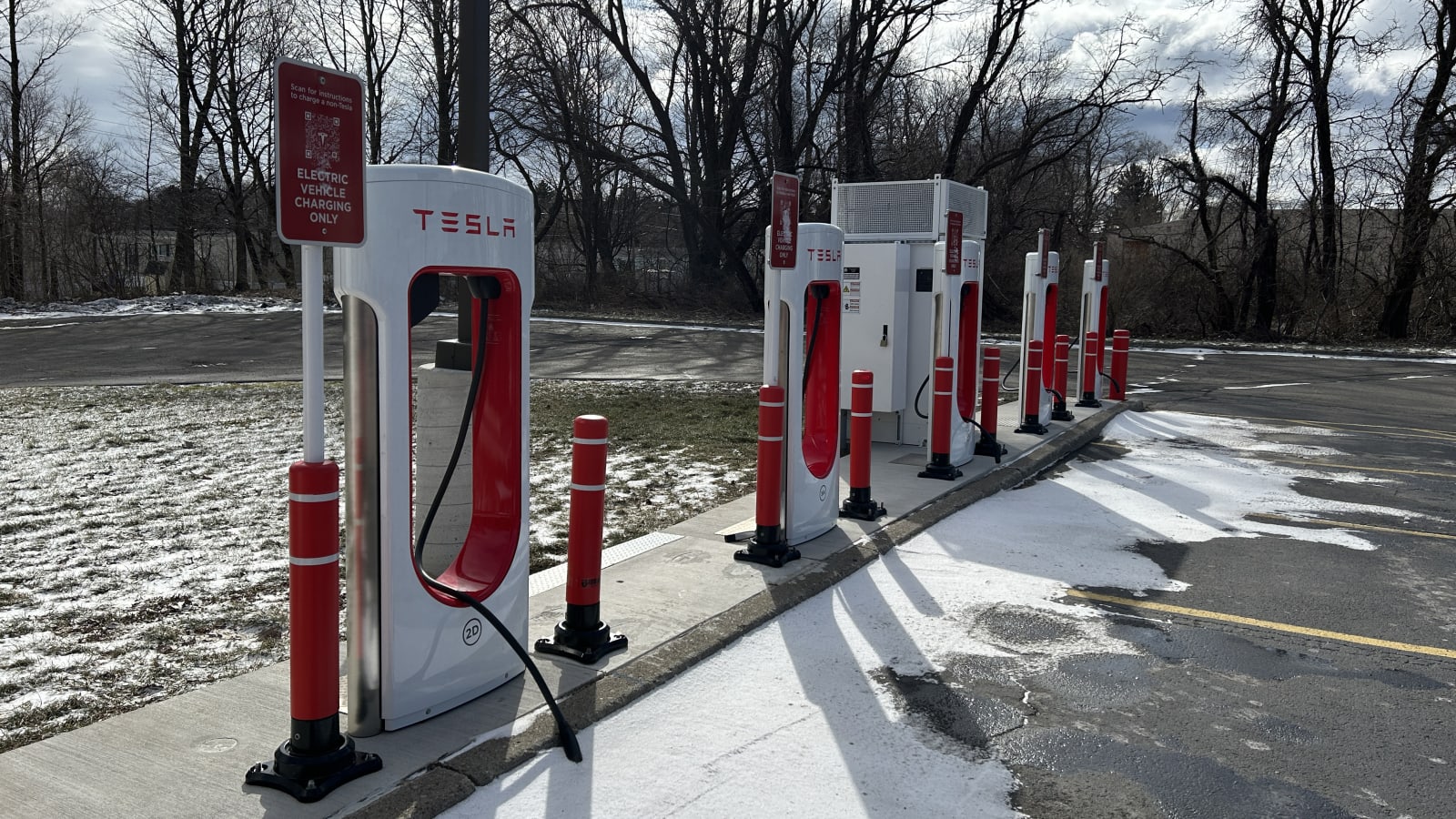
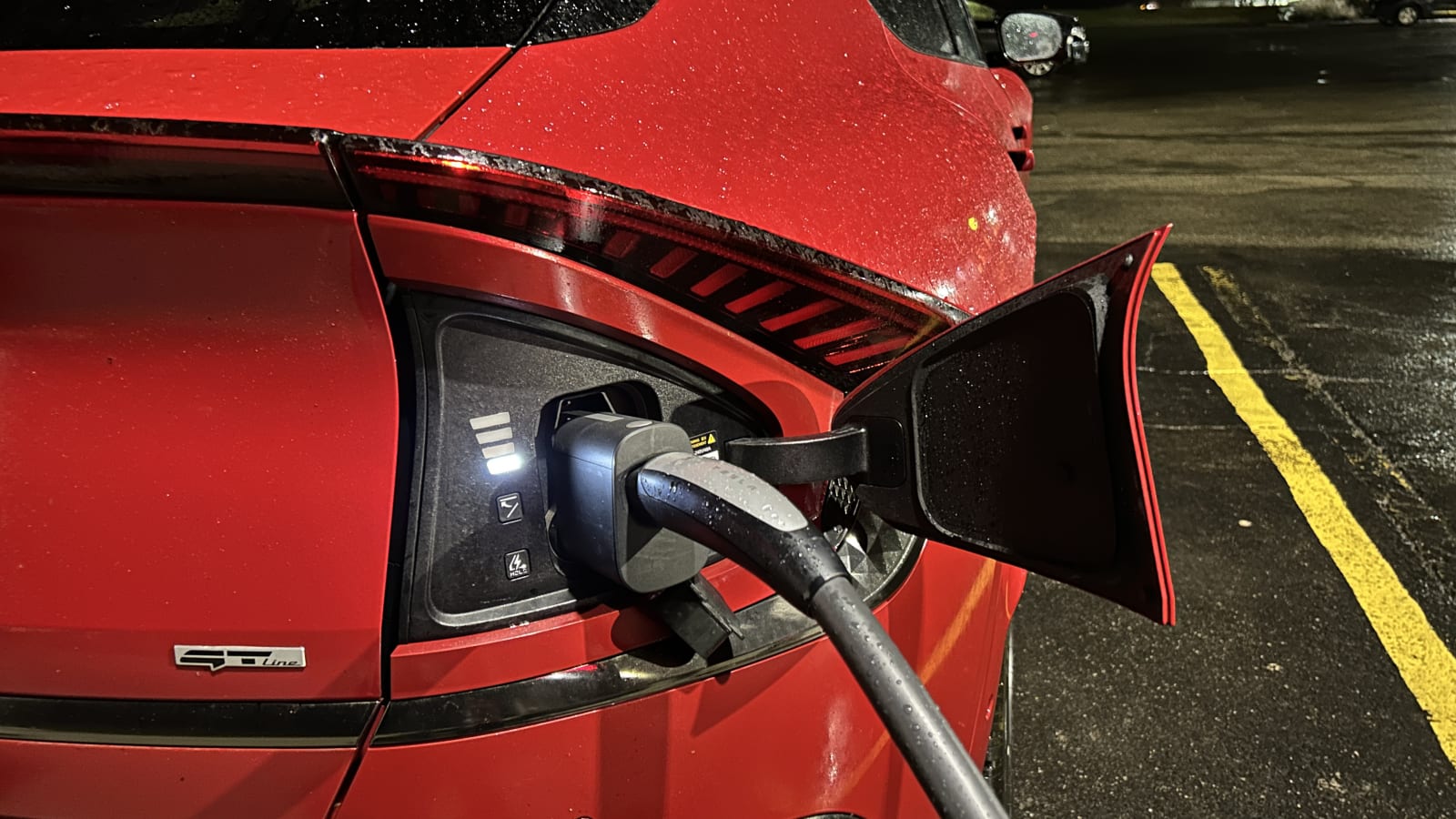
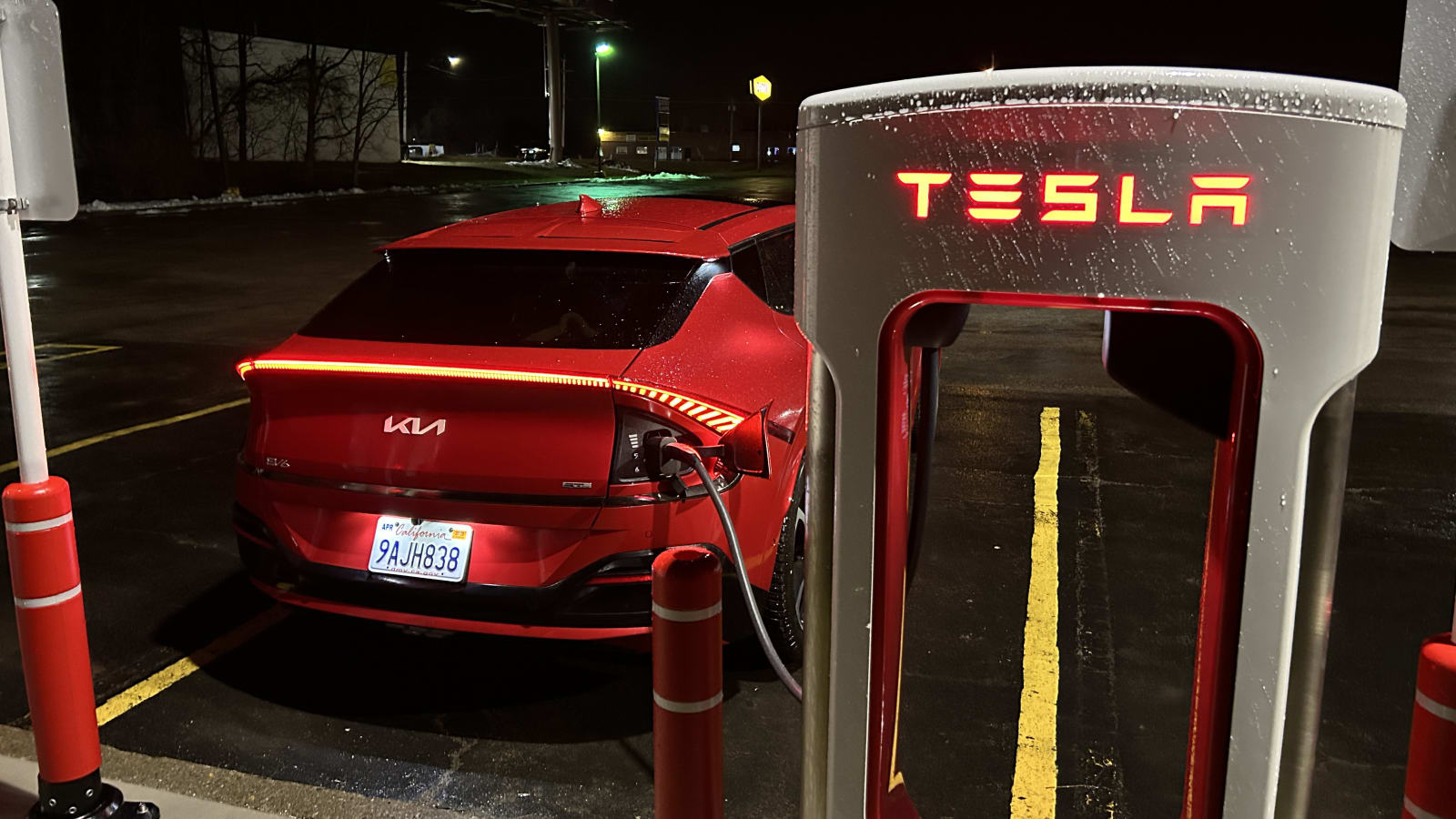
Our EV6 has the other common location, on the passenger-side rear, which presents a slightly different issue. Parked side-by-side with another Tesla, the two of you will end up fighting for the same plug. Practically speaking, us being plugged in on the “wrong side” with our EV6 makes one of the charging spaces useless for a Tesla owner who may come along. Unless there are lots of open spots, this sure seems inconsiderate, and we don’t encourage it. Queue the angry social media posts in 3, 2, 1 …
Once you get the logistics of the situation sorted, beginning a charge session is simple and done 100% through the app. Just pull up the Supercharger station you’re at within the Tesla app, tap on the specific charger you’re going to plug into (they’re clearly labeled by number and letter), and then tap the big blue button that says “unlock adapter.” This unlocks the “Magic Dock” that Tesla has installed at these charger stations. The Magic Dock is necessary because it contains the adapter from Tesla’s J1772 connector to the CCS (Combined Charging System) connector used by the EV6 and most other EVs — this is why only certain locations are available now, because Tesla needs to install Magic Docks everywhere it intends to allow non-Teslas to charge. It only takes a second after hitting this button for the adapter to unlock, and once it’s done so, you go grab the connector, push in, and the charger with the CCS adapter falls out. After that, it’s as easy as plugging in your car. Tesla says that it could take as much as two minutes for charging to begin, but it only took about 5-10 seconds in our experience.
Once you’re done charging, you go back into the Tesla app and tap “stop charging.” You can then unplug and put the Magic Dock back where you found it. We charged our EV6 at this particular location on two separate occasions, and the starting/ending process was utterly seamless without a single hiccup.
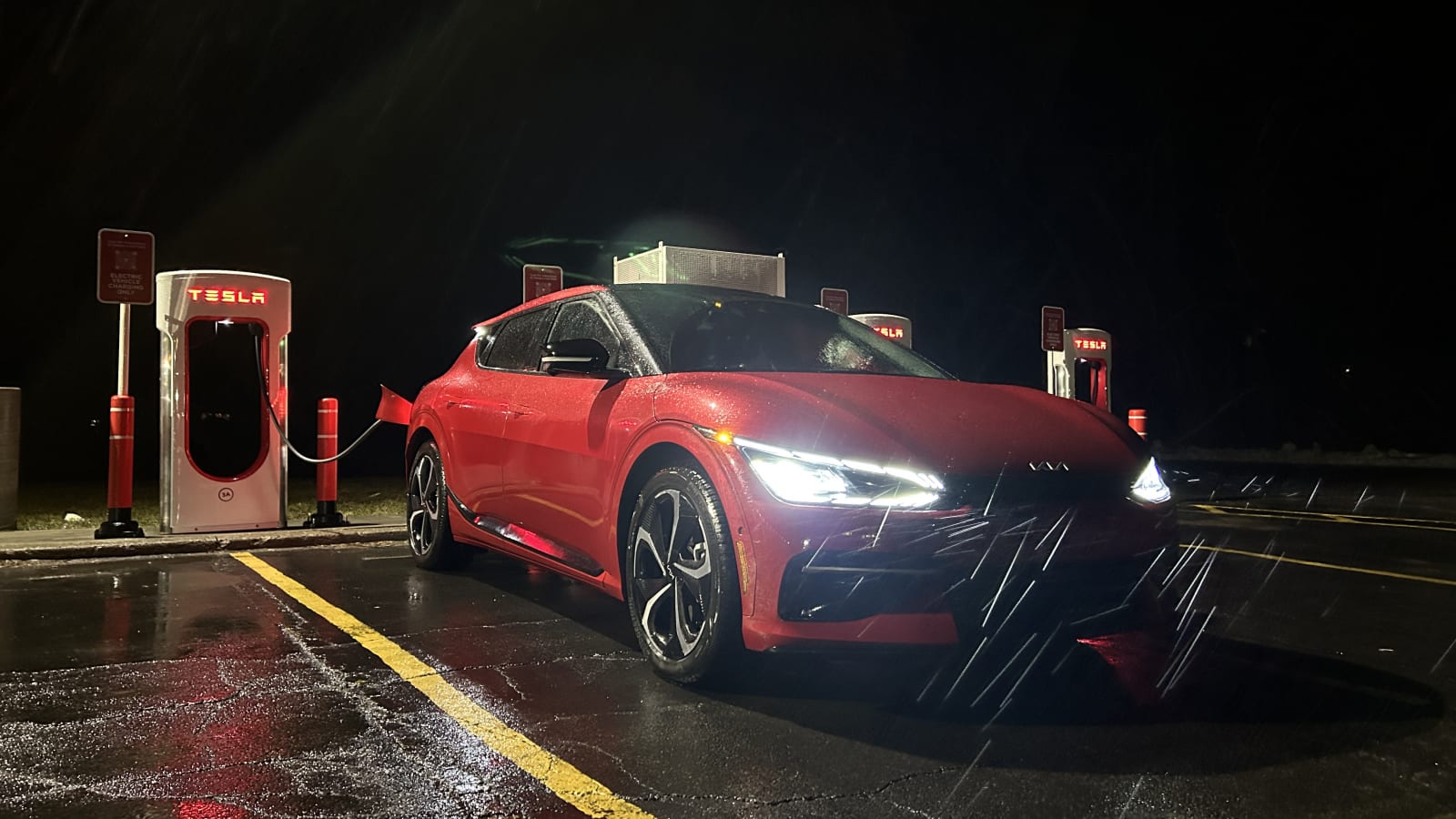
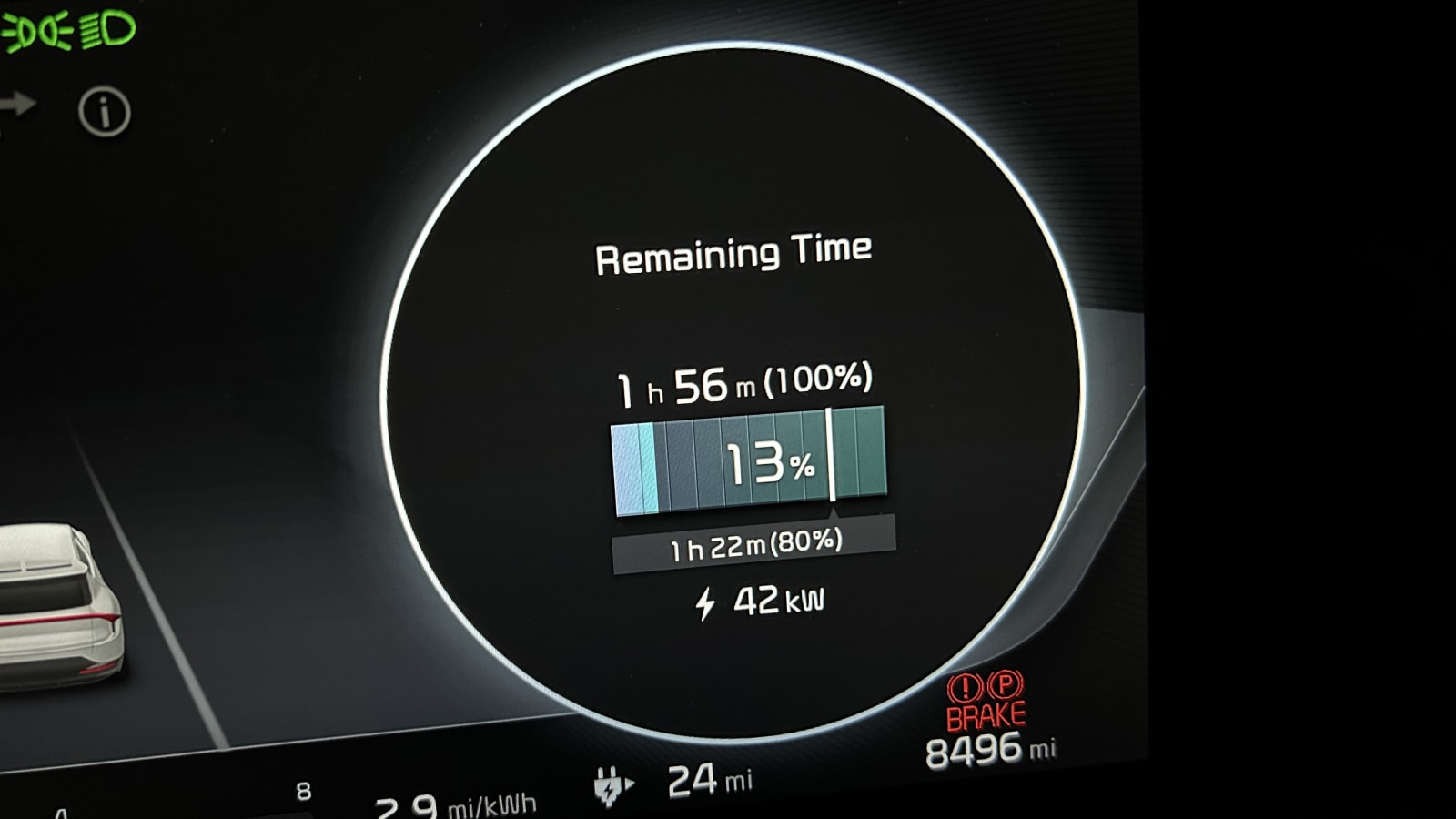
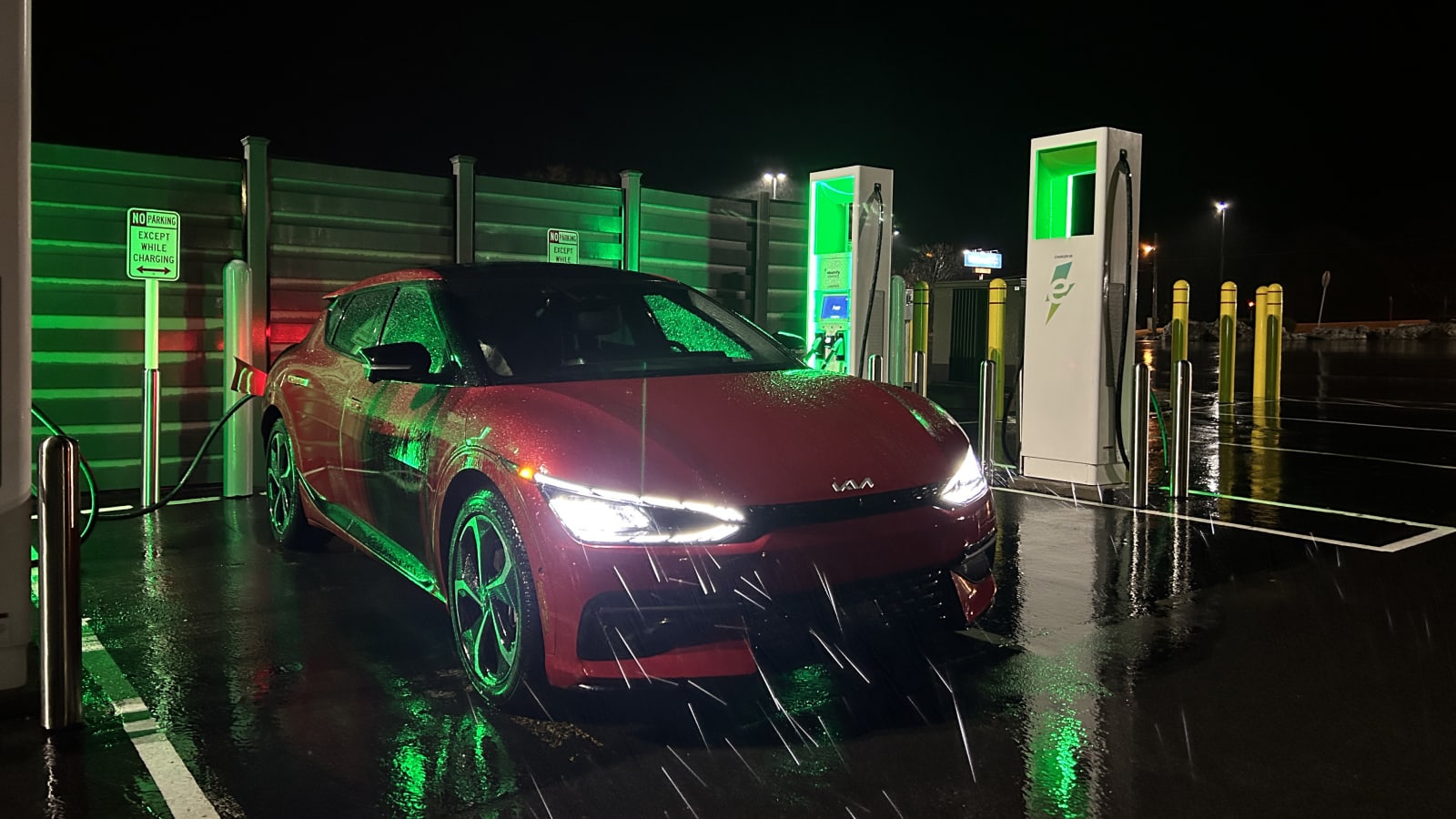
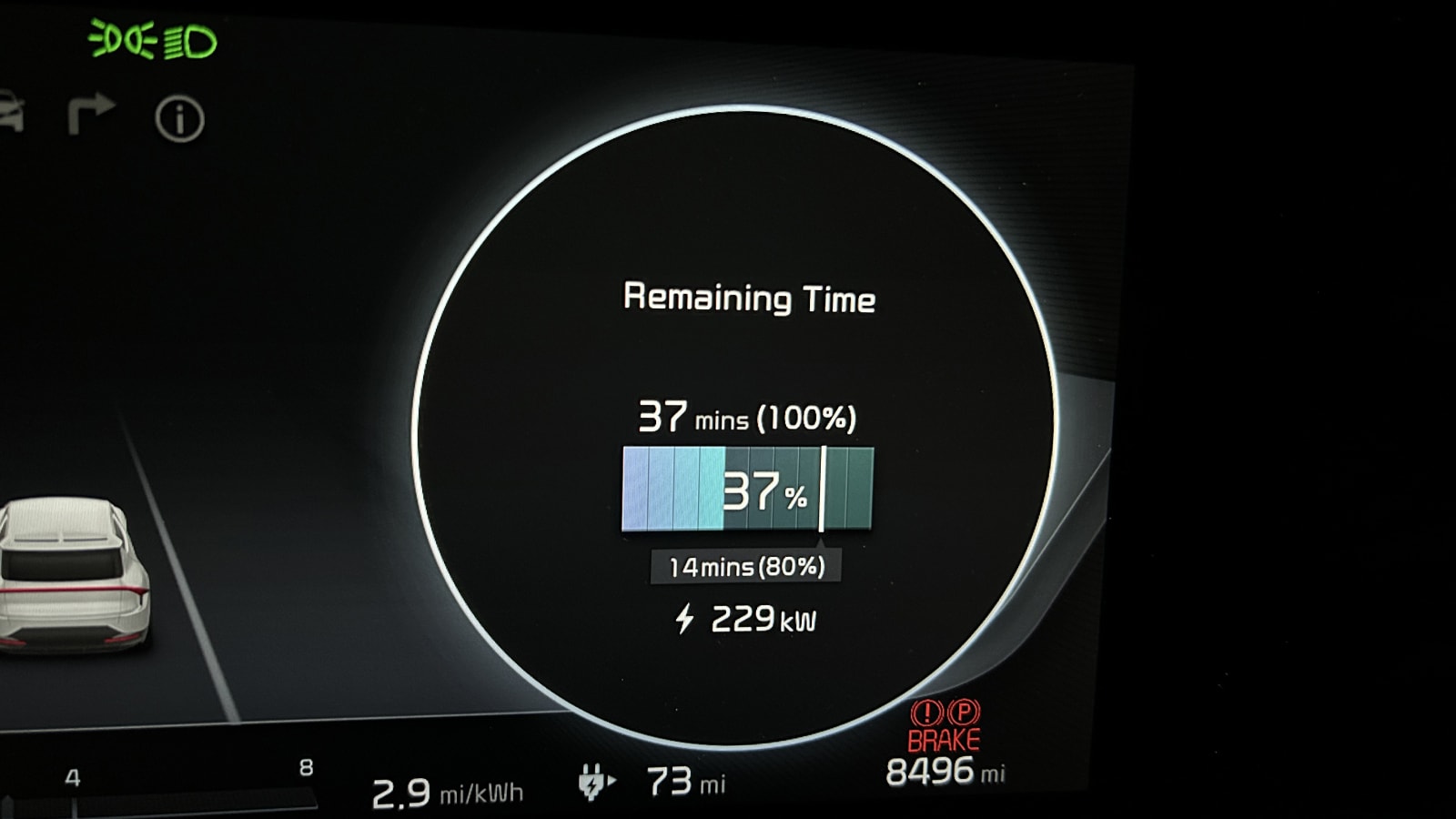
Top right: charging performance at Supercharger; Bottom right: charging performance at Electrify America charger
However! There’s one (very big) problem with charging some non-Tesla EVs on Tesla Superchargers: charge speed. The maximum charge speed we saw on both occasions charging our EV6 was 42 kW, which is a far cry from the 235 kW speeds our EV6 is capable of. Why is the EV6 so slow on the Tesla Supercharger? It comes down to the electrical architecture of the car. The EV6 (and every other E-GMP platform car from Hyundai) employs an 800-volt electrical architecture that is designed to be fast-charged with 800-volt chargers. The Porsche Taycan, Rivian R1T/R1S and a few others can do the same. Meanwhile, Teslas all use a 400-volt electrical architecture and Tesla Superchargers are 400-volt chargers. In optimum conditions, the same charger that our EV6 could only pull 42 kW from could charge a Tesla at up to 250 kW.
Another 800-volt EV that is designed to accept 400-volt chargers is the GMC Hummer EV, which GM says is designed to support 400-volt charging infrastructure without a converter box or accessories. We’ve yet to test a Hummer on a Supercharger, though, so its ultimate charge performance remains to be seen.
We asked Kia about this charging conundrum and received the following in return. “Kia is aware of some issues with the EV6 charging on Tesla Superchargers and is working to resolve the issue.”
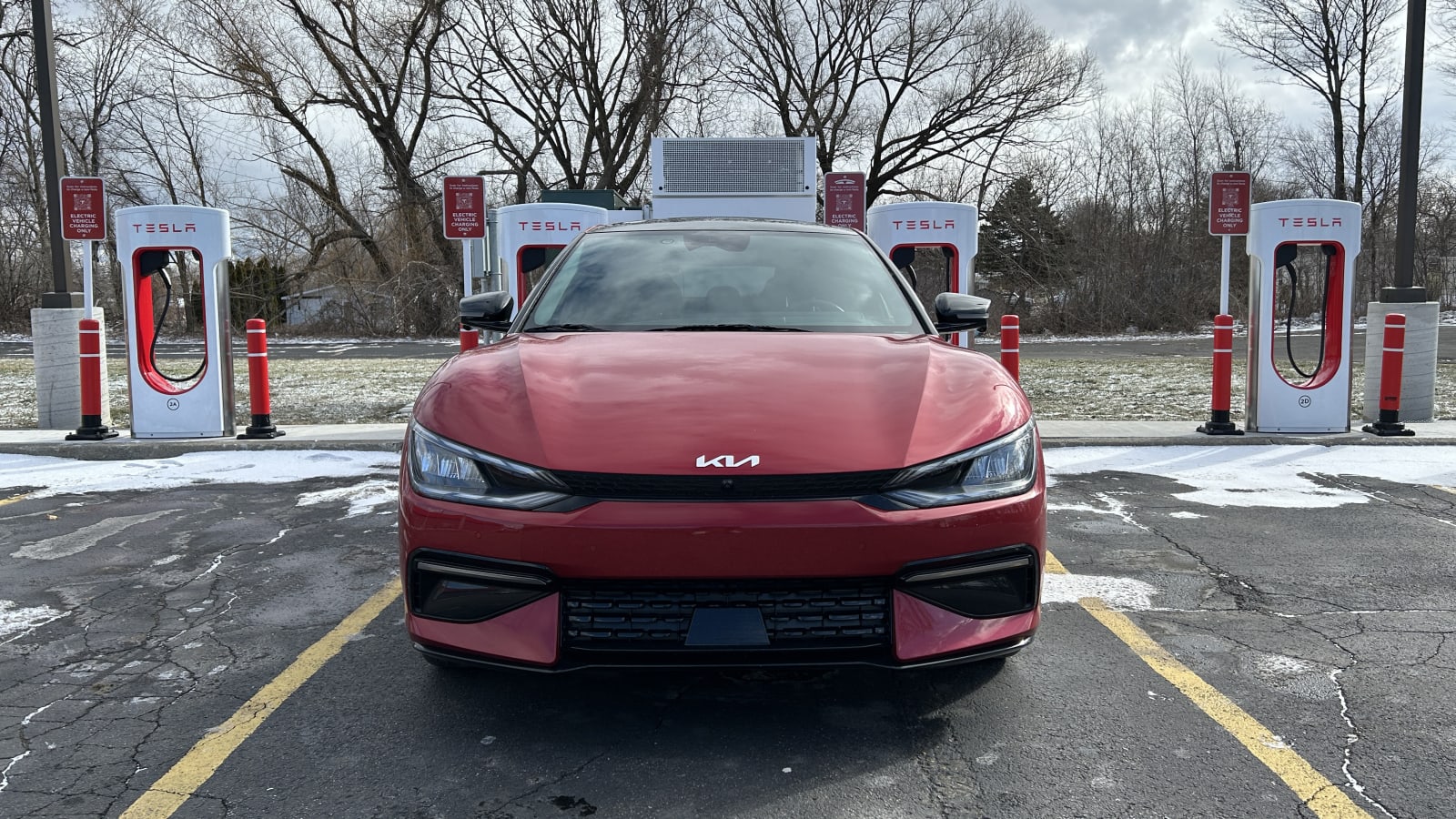
The ultimate conclusion we can come to here is that Tesla opening up its Supercharger network is a boon for only some EV owners. Instead of waiting around an hour-plus for the Supercharger to charge our EV6, we popped over to the Electrify America across the street and instantly pulled 230 kW charge speeds. It went from 10-80% in just 20 minutes. That’s infinitely more appealing than wasting a couple of hours waiting on slow charging. Now that we know the reality of charging our EV6 — a reality that almost certainly applies to platform mates like the Hyundai Ioniq 5 and Genesis GV60, too — on a Tesla Supercharger, there’s a good chance we won’t be going back.
For those with EVs that are better equipped to charge on Superchargers, the rollout of additional open stations will be a huge plus to the ownership experience. Outside of cars that utilize Plug-and-Charge technology, the Tesla Supercharger experience with non-Teslas is both faster and easier than plugging in anywhere else. Plus, Superchargers have proven to be far more reliable than the often-broken Electrify America or EVGo network sprawled across the country. Given a compatible vehicle and the choice between a Supercharger or other charger, sign us up for the Supercharger every time.
Related: I’ve owned an electric car for four months and not used a public charger once
Related video:
